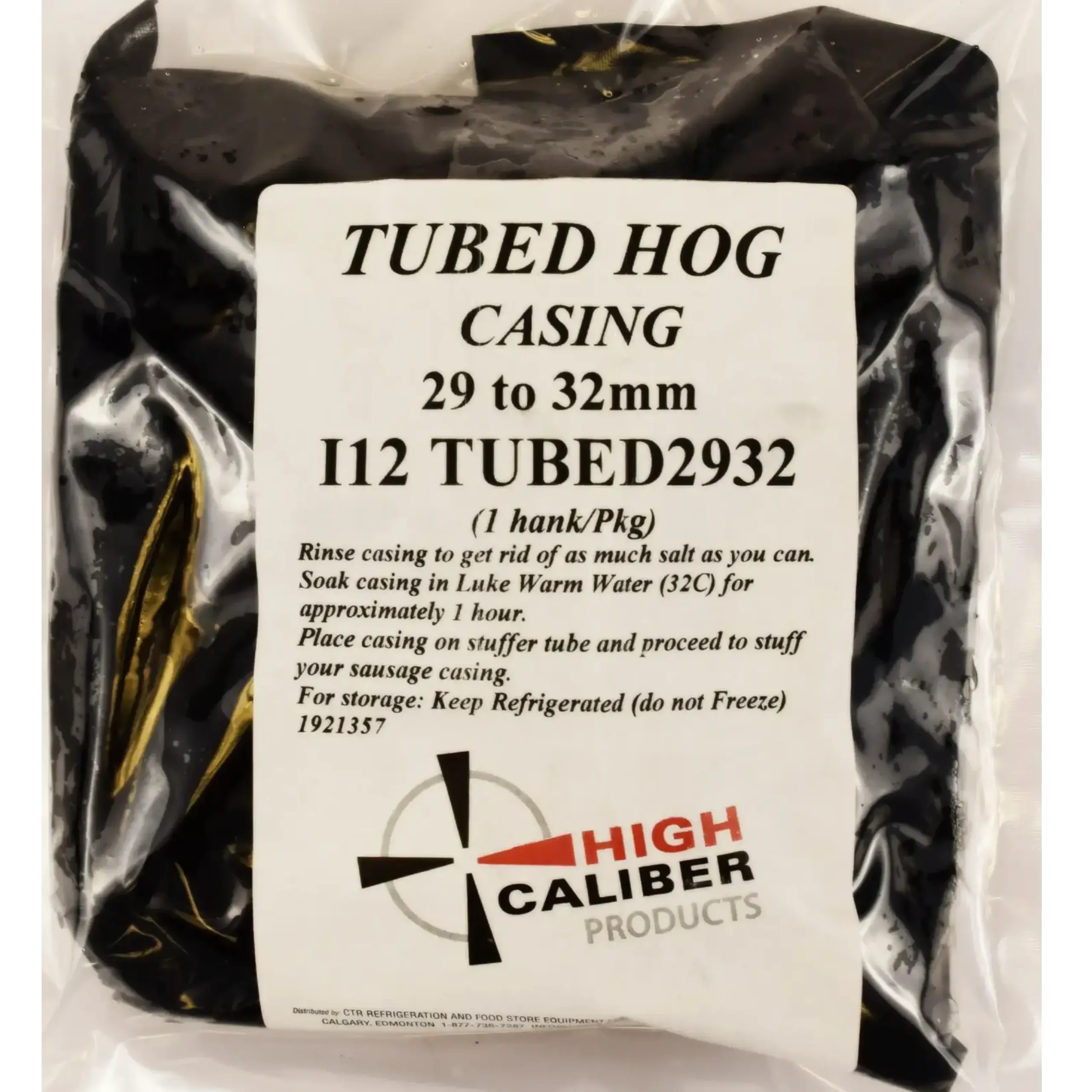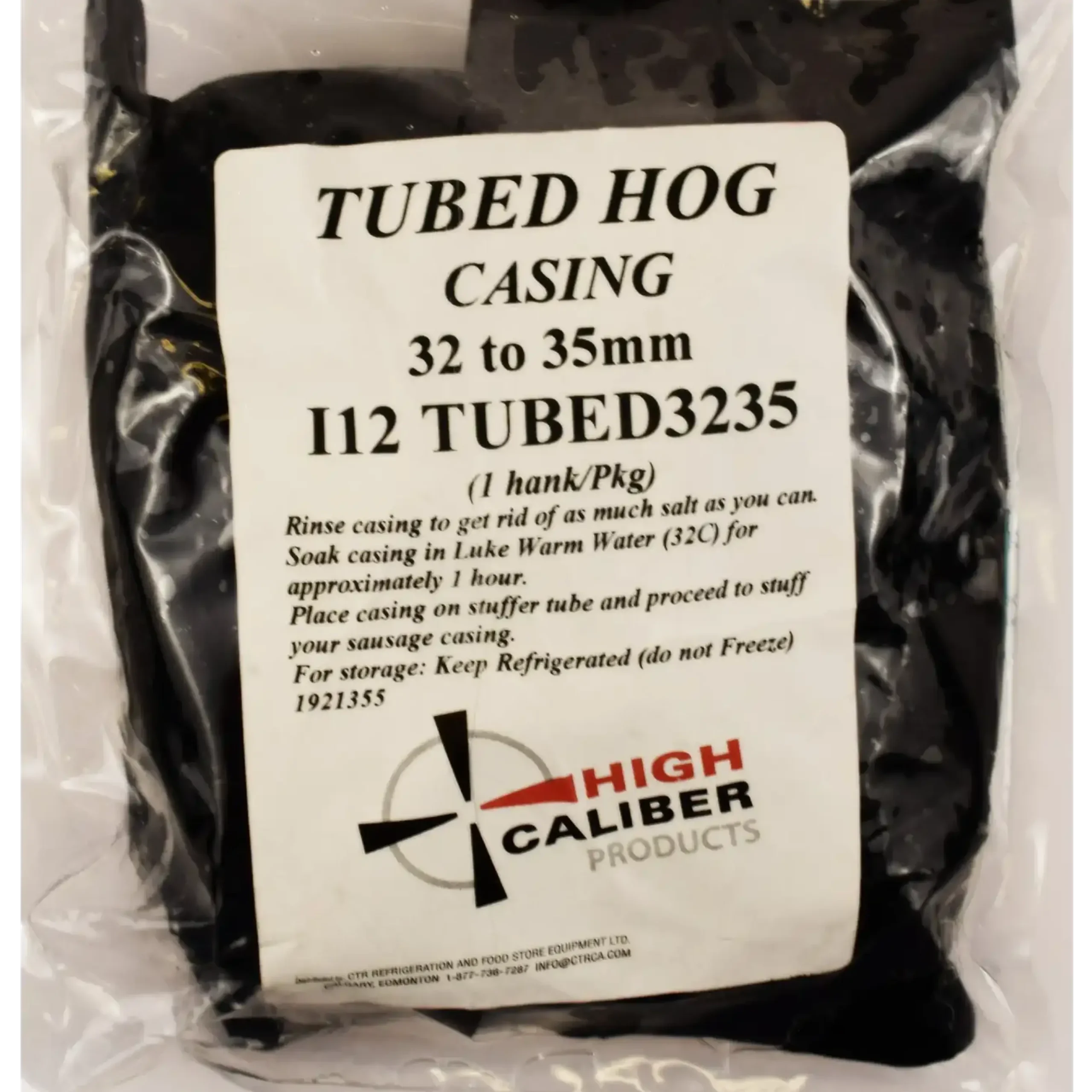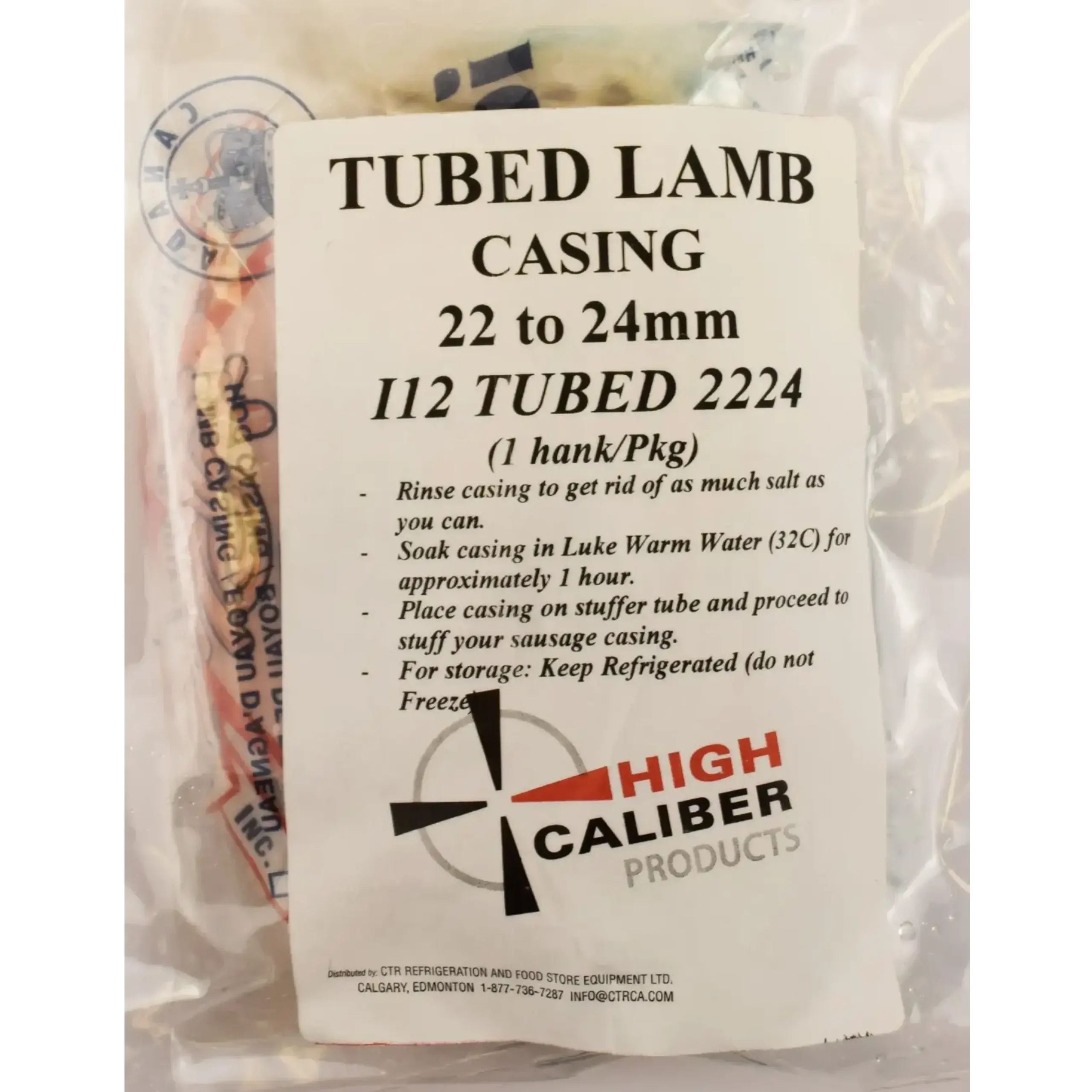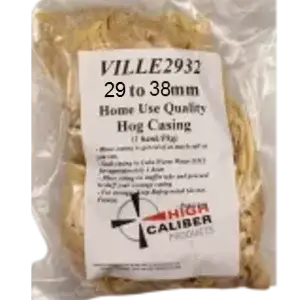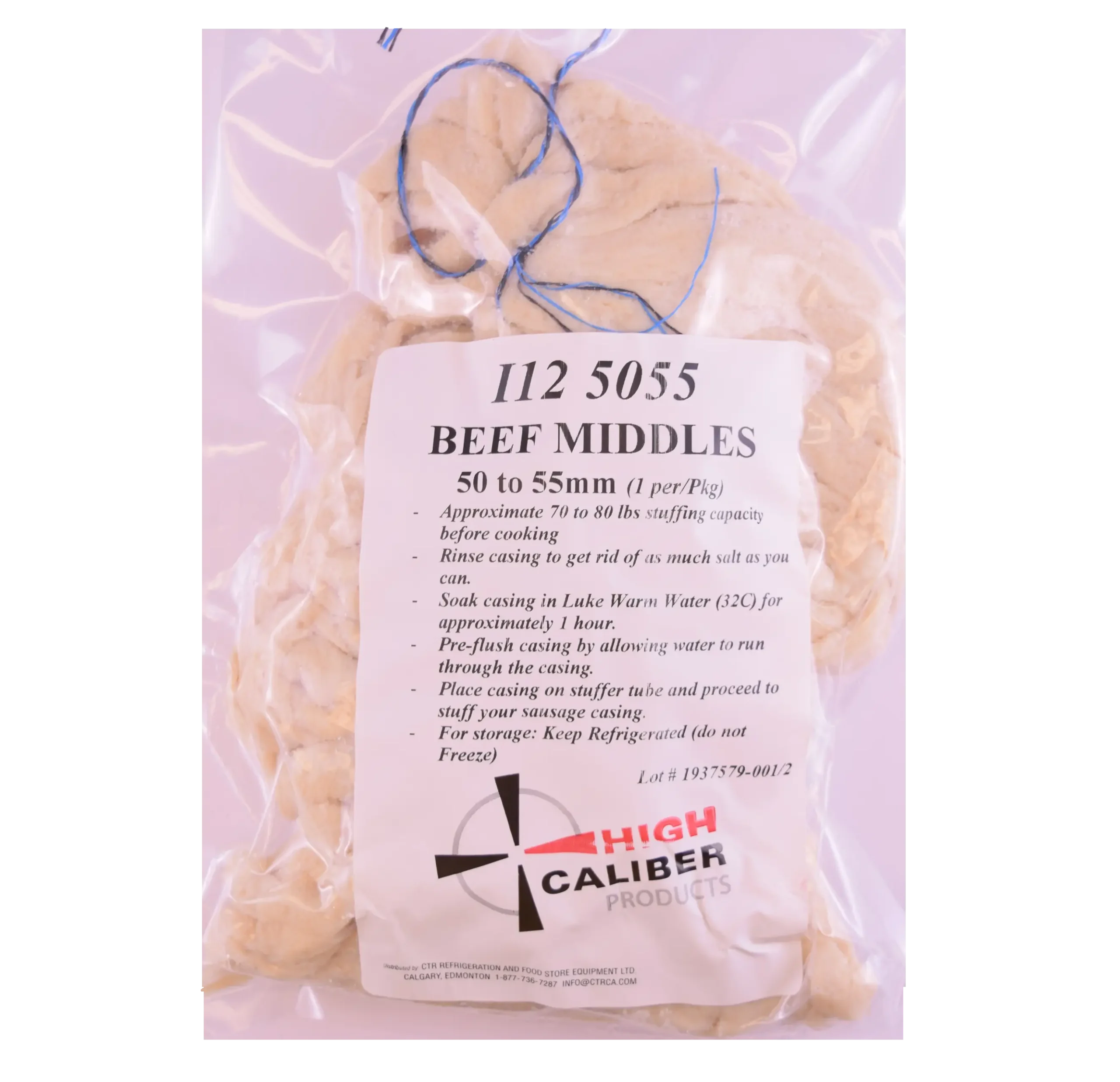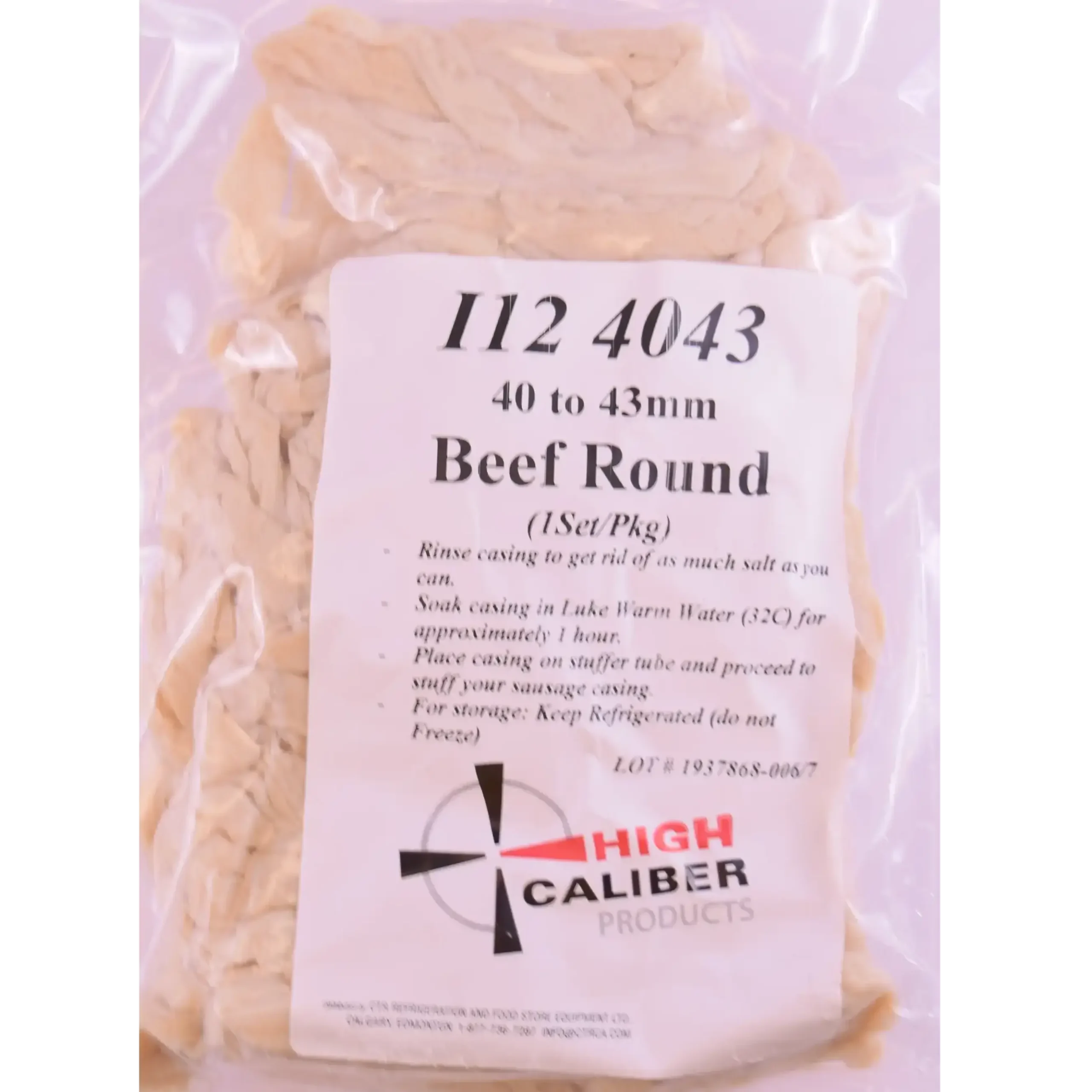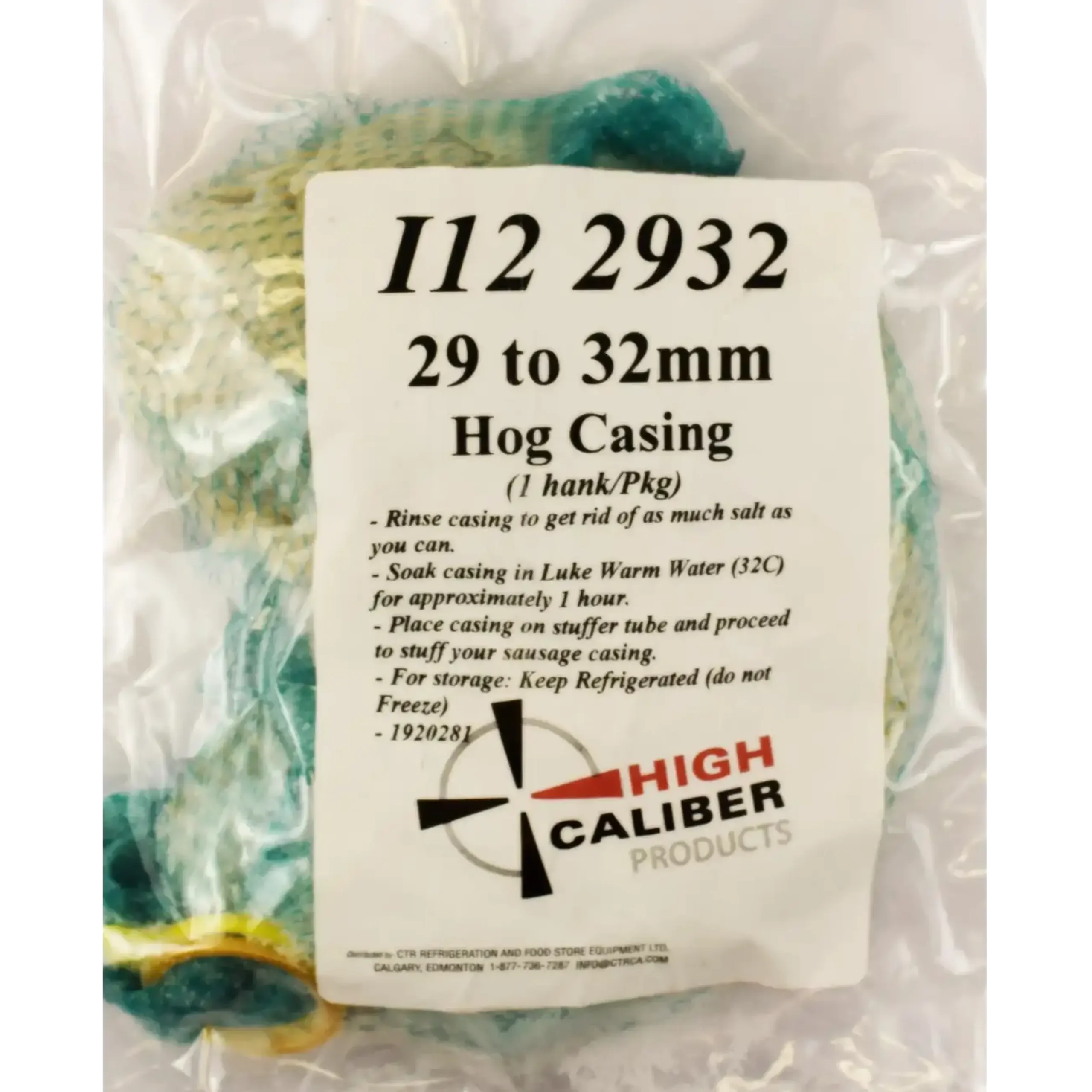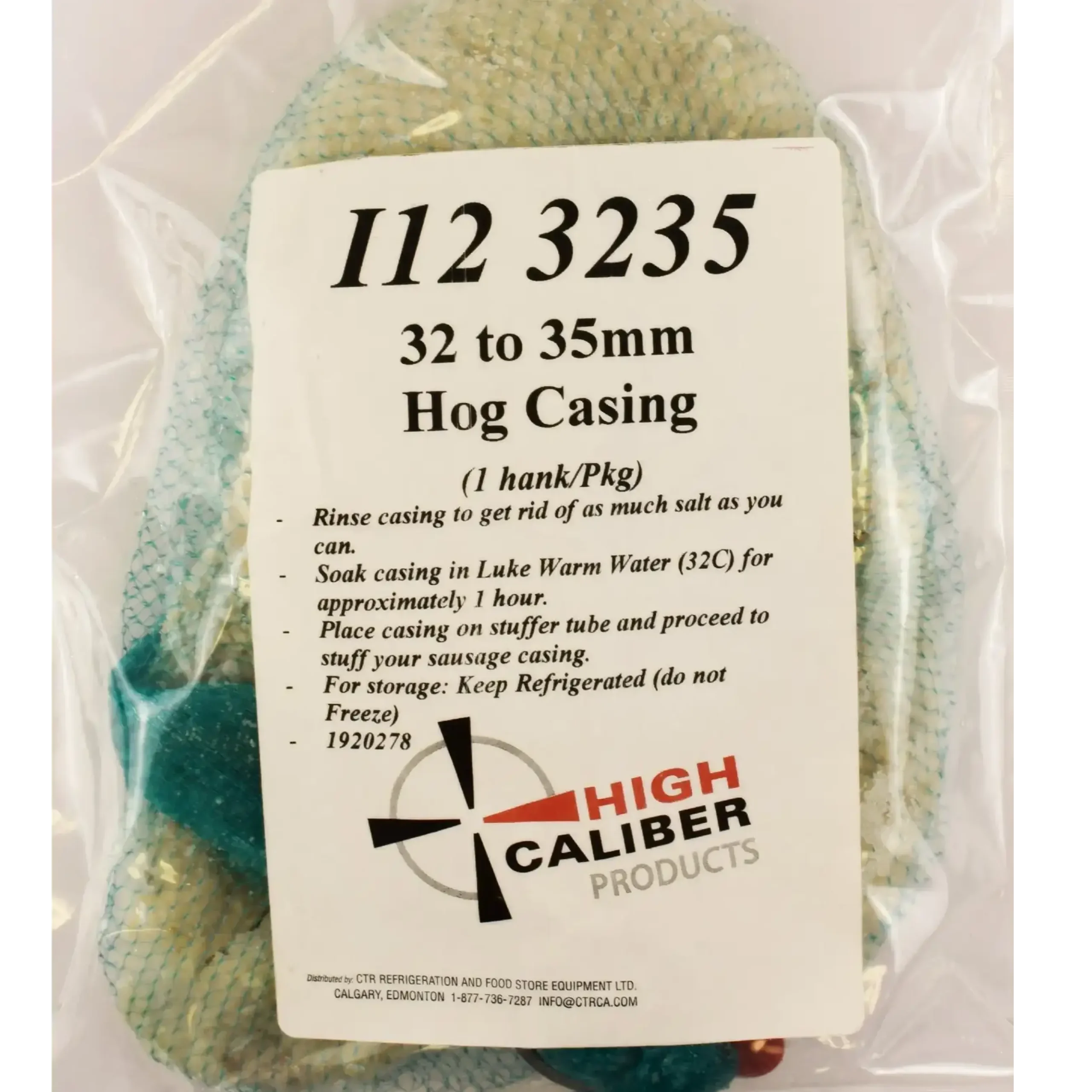
Natural Sausage Casings for Sale in Canada
If you’re a foodie or a person with a pulse you definitely know that “natural” is a big buzz word these days. When it comes to homemade sausage, natural ingredients are usually high on the priority list. If you want your sausage considered organic, you better stick with Natural Sausage Casings.
A natural sausage casing tends to deliver the best flavor in the final product as it enhances and complements the natural juices and quality of the meat and spices. Due to its breathability, Natural Casings are also popular amongst the DIY smoker movement as they allow for deep smoke penetration. Natural Casings are transparent, so they also serve as a lovely way to highlight your sausage’s quality ingredients.
When it comes to choosing a “Natural Sausage Casing” there are three main types: hog, sheep and beef. Click here to view our Natural Casing Size chart. So what is a natural sausage casing exactly? Well, without getting into the finer details, it’s basically a layer of the intestine that is turned into a beneficial, marketable product to maximize the value of each animal. That means less waste, fewer chemicals and high quality standards. Click here for more info on how we ship Natural Products
We carry an extensive line of Natural Sausage Casings including:
more...
- Natural Beef Bungs, Middles and Rounds
- Salted Natural Hog Casings
- Natural Tubed Lamb Casings
Natural Sausage Casings are ideal for:
- Fresh Sausage
- Smoked Sausage
- Dry Sausage
Notes for optimum performance with Natural Sausage Casings:
- Must be refrigerated and stored according to package directions.
- First rinse the casing to remove as much salt as you can.
- Flush fresh water through the inside of the casing to remove excess salt.
- Place rinsed casing in a “soaking bath”. Temperature should not exceed 90°F (32°C ).
- Should ideally soak for at least one hour.
- If you have casing left over, allow liquid to drain from the casing – getting rid of as much water as possible. Add salt to cover and place in a clean, airtight container in the refrigerator.
- It is NOT recommended to keep the casing in the freezer. This may damage the casing and make it harder to work with, even if thawing were to occur slowly.
Did you know that we offer Sausage Making Classes in our Calgary and Edmonton locations? Click here to sign up for our newsletter and always be the first to know when new dates are released.
less...

